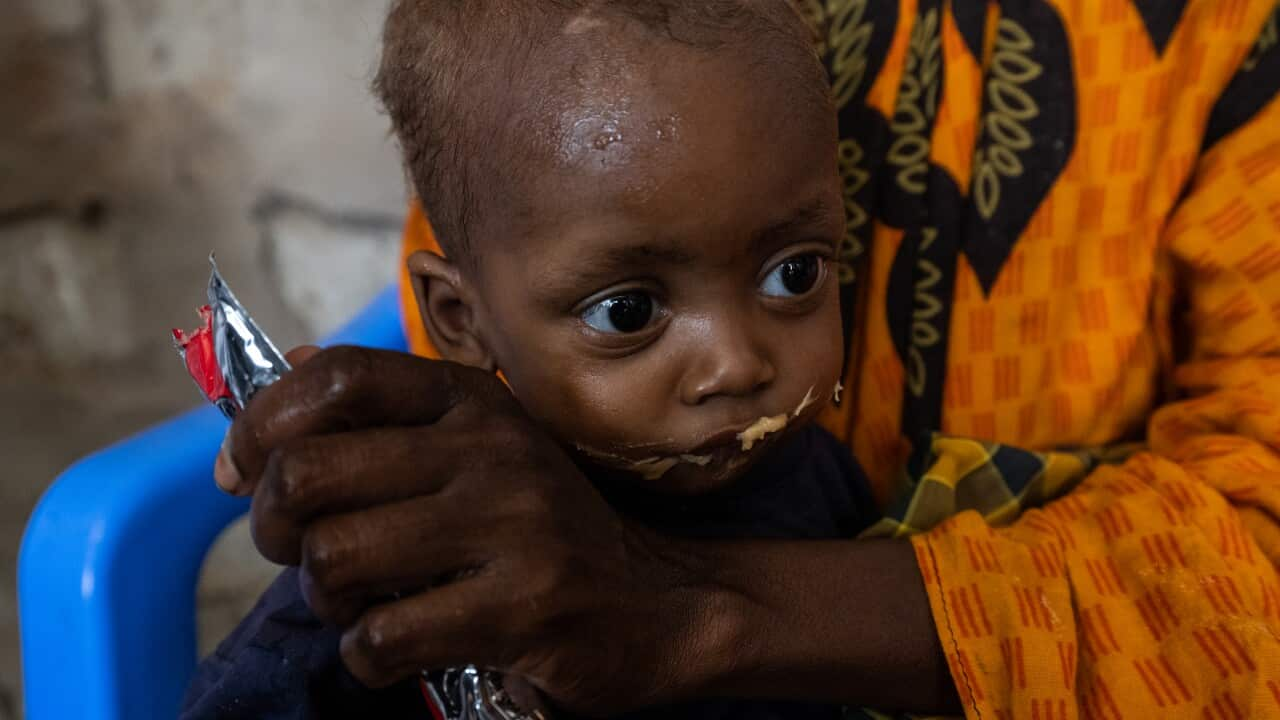Mohamed Ibrahim, a former Somali federal minister of Somalia and a long-time Melbourne resident has written to Australia's foreign minister Penny Wong to appeal for humanitarian aid for his homeland as it faces yet another drought and stares at one more famine which can be declared any time now.
"The shocking part is how this always becomes an emergency given this has been a recurring event over many years," remarks Mr Ibrahim referring to another drought that has hit the east African country.
Describing the situation in Somalia as "dire," Mr Ibrahim went on to state that "the latest UN report confirms that as the present drought worsens in Somalia, a child is being admitted for medical treatment for malnutrition every minute".
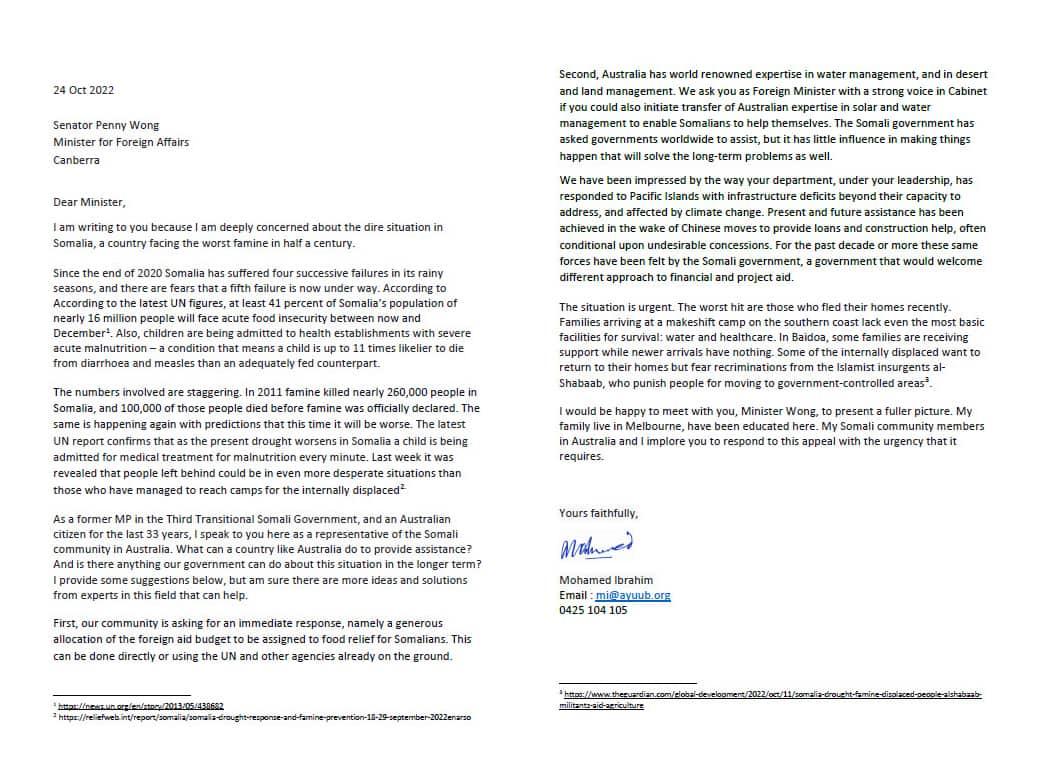
A letter sent to Australian foreign minister Penny Wong
Helped Solomons, help us
As a representative of the Australian-Somali community, Mr Ibrahim tells SBS Somali that he wrote to Senator Wong "to raise awareness not only to learn from this current crisis but also to prevent future ones in the years to come".
Referring to the recent diplomatic assistance offered to Solomon Islands in the wake of China's outreach to the Pacific nation earlier this year, the letter implores the Australian government to act on this request with urgency just as it "responded to Pacific Islands with infrastructure deficits beyond their capacity to address, and affected by climate change."
Hinting at Chinese interference in Somalia, Mr Ibrahim draws another parallel with Solomon Islands in the letter as he writes his home country has also "felt the same forces for the past decade or more.
An Australian citizen for 33 years, Mr Ibrahim writes: "Our community is asking for an immediate response, namely a generous allocation of the foreign aid budget to be assigned to food relief for Somalis."
He also raises concerns about recrimination by insurgent groups active in Somalia like Al Shabaab which could draw needy and frustrated Somalis into criminal activity for monetary interests.
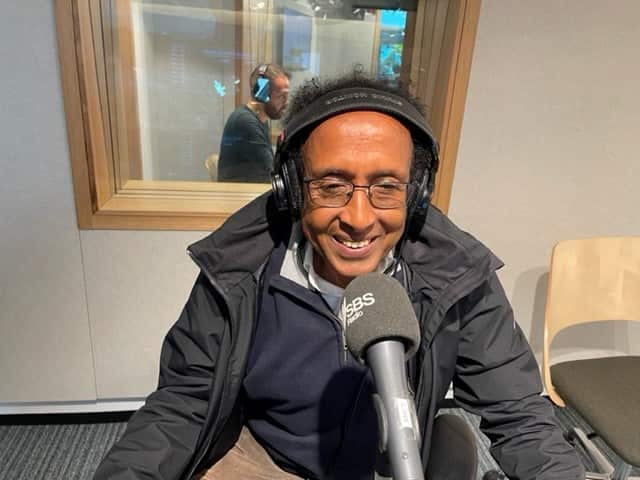
Former Somali federal minister Mohamed Ibrahim at SBS studios. Credit: SBS
The UN is warning the nation is facing its worst drought in decades with an estimated 8 million people in Somalia facing severe food insecurity, with millions of lives at risk.
Endorsing Mr Ibrahim's letter is Mohamed Weli Ahmed, a Somali-Australian from Melbourne.
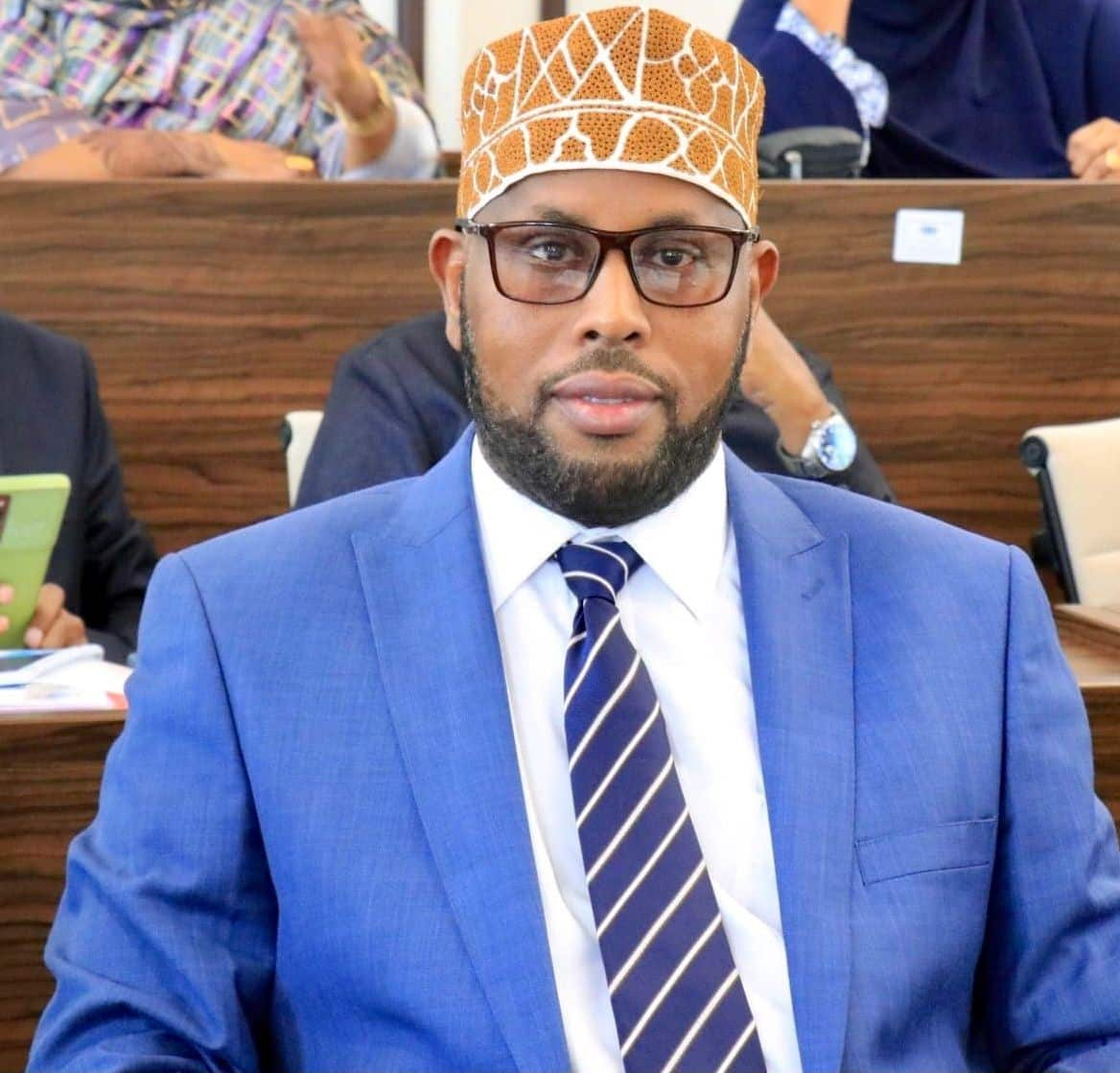
Mohamed weli Ahmed, a member of Somali Parliament and Australian citizen
Mr Ahmed has recently returned from the Somali capital city of Mogadishu where he saw first hand the terrible crisis unfolding.
"Before I left Mogadishu, I visited a local hospital where I saw shocking scenes.
Malnourished and dying children between the ages of three and five — so weak they can't speak or cry.Weli Ahmed
Mr Ahmed echoed the call by the Australian community who are collectively calling on the Australian government to provide $150 million in aid to help feed hungry people in the drought-stricken country.
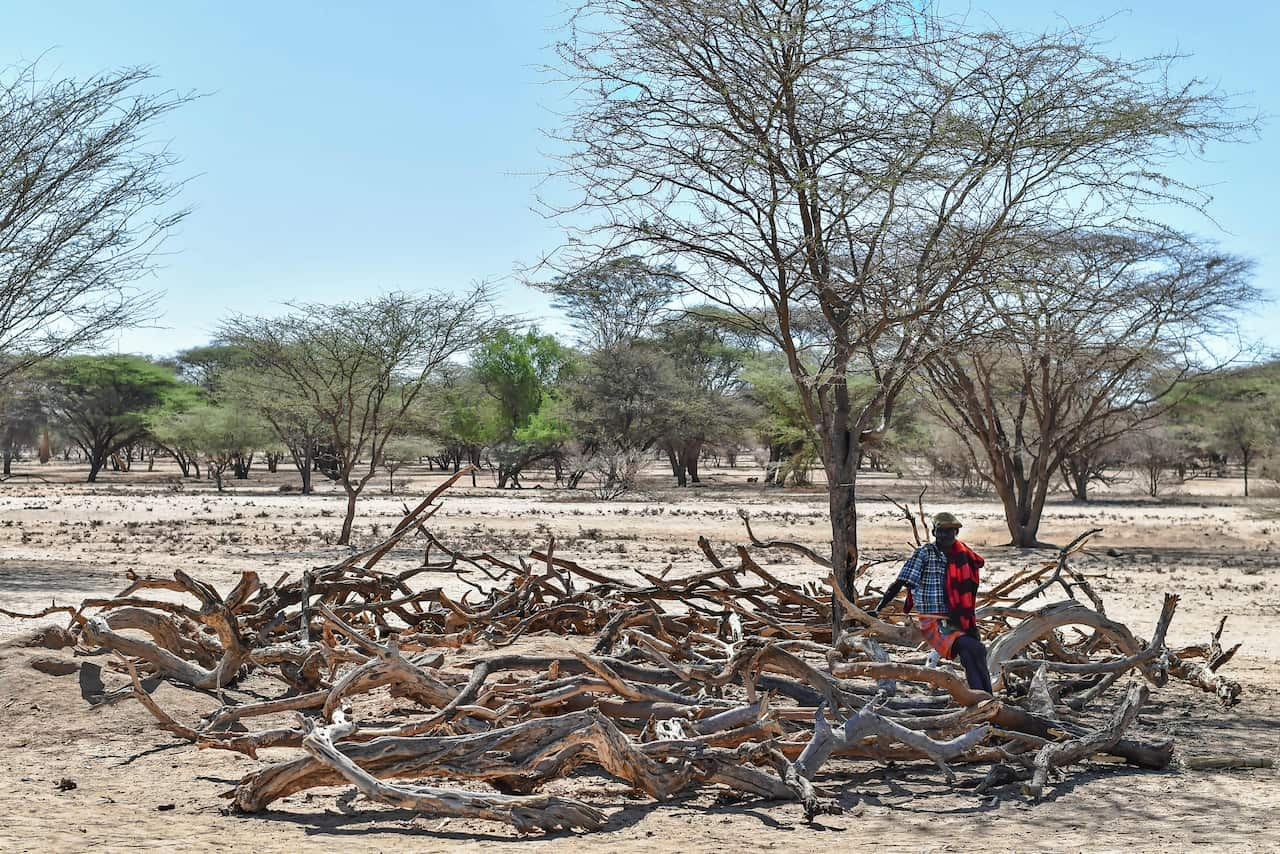
Seated on firewood, a man from the Turkana community takes a break under a tree at a school in Sopel village near the administrative capital Lodwar on 27 September. Source: AFP / TONY KARUMBA/AFP via Getty Images
He has been recently elected to the Somali Federal Parliament. Somalia allows dual citizens to hold an elected office and has had many political and military leaders with an Australian dual citizenship.
Talking to SBS Somali, Mr Ahmed said that while his home country contributes a negligible fraction to global carbon emissions, it is probably bearing a disproportionate brunt of the climate crisis.
The major economies must play their role since they are responsible for climate change.Weli Ahmed
“Australia is really a wealthy country, and we are asking her to play a role in helping people impacted by the drought in Somalia.
"We want Australia to send a substantive amount in medicine, food and make funds available immediately through NGOs like AusAID,” he added
While recurring drought conditions are being attributed to climate change, the war in Ukraine has exacerbated food insecurity.
Mr Ahmed is pleading with Australia to act on the famine crisis in line with many other rich countries who are helping the needy.
“We have seen many peer countries helping the people affected by the drought including USAID, Norwegian and Danish NGOs who are doing a good job in some parts of the country, but we would like see AusAID to step up and help Somalia,” Mr Ahmed says.
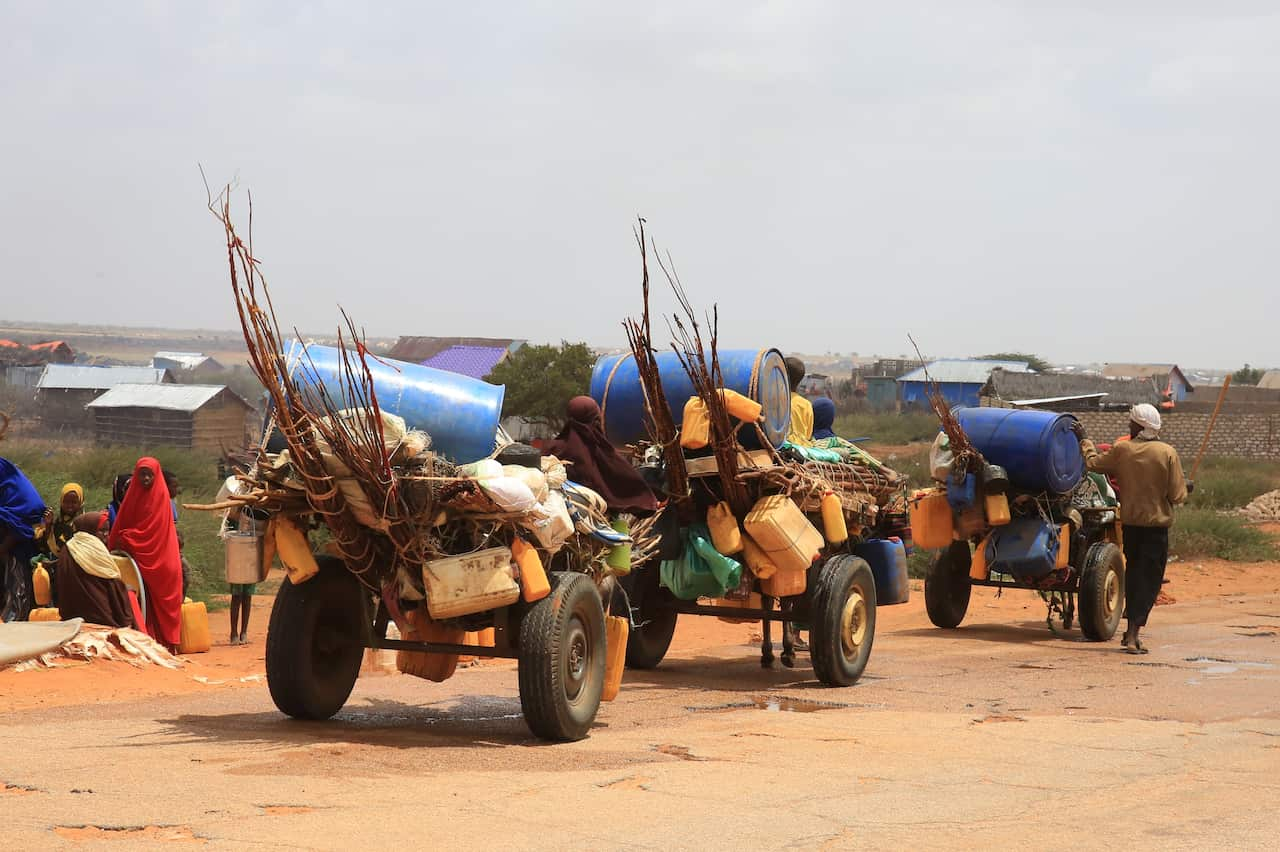
People arrive at a camp in Mogadishu, Somalia on September 2 after they left their homes in search of food and water. Source: Anadolu / Anadolu Agency via Getty Images
Children most vulnerable
The looming famine is impacting the most vulnerable in Somalia with children dying of malnutrition and hundreds of thousands of families displaced, UN agencies warned.
Though famine has not yet been officially declared in Somalia, the unfolding tragedy in the Horn of Africa is putting hundreds of thousands of children at risk.
It is estimated that more than half of all children in Somalia are facing severe malnutrition.
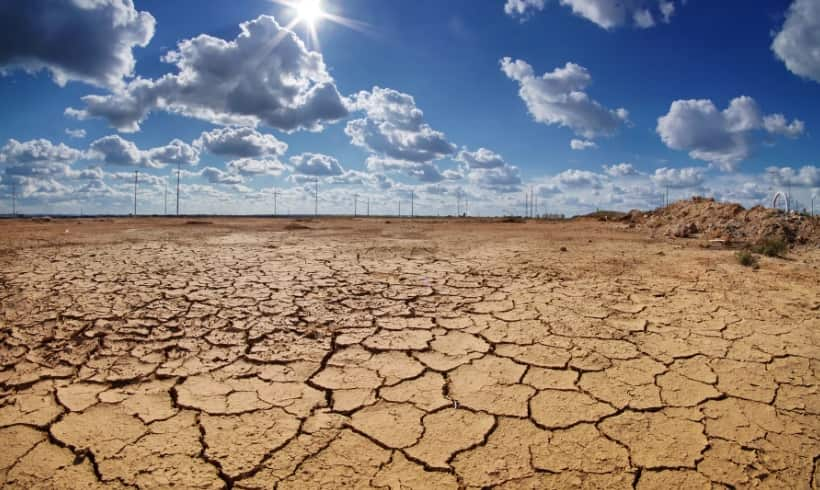
Source: Getty / Getty Images
Conflict worsening crisis
The east African country is also reeling from its 30-year-old civil war including failing infrastructure, rising corruption and governance challenges.
Local militias backed by government forces have launched a large-scale attack against Al-Shabaab, an insurgent group that has plagued this country for decades, adding to the displacement of people and hampering humanitarian efforts.
Politics of famine
The debate on whether the current drought in Somalia and wider east Africa can be classed as famine is ongoing.
Famine is a technical word in the humanitarian context and according to UN experts, it is only formally declared when a substantial percentage of a country’s (or region’s) population is unable to get sufficient food.
Or, certain parameters such as low levels of malnutrition, insecurity and a high mortality rate are met.
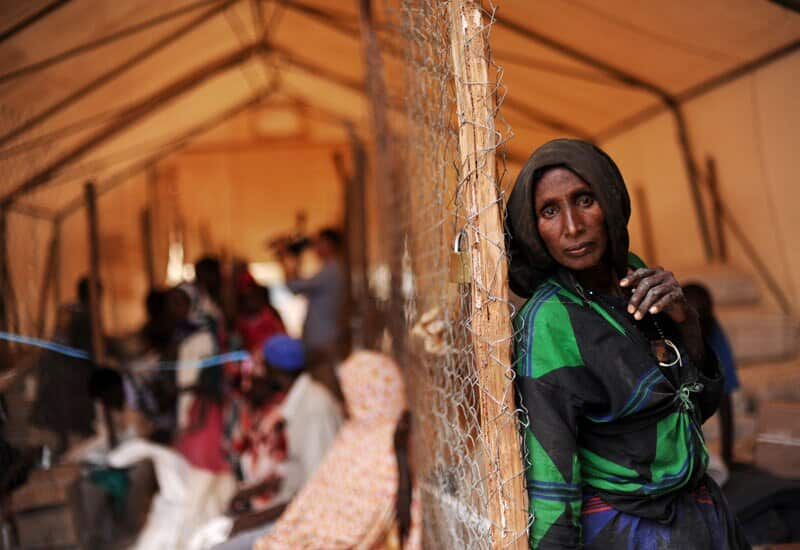
A Somali refugee waits to receive a food ration for her and her family at a food distribution point at the Dadaab refugee camp. (Getty)
Africa demands climate action at COP27
Africa is far more likely to suffer the effects of global warming — some of which are already being felt, such as the ongoing drought that has taken hold over the Horn of Africa.
African leaders attending the recent COP27 Climate Summit in Egypt used the forum to demand the wealthy nations, who contributed the most to the planet’s pollution, to pay the cost.
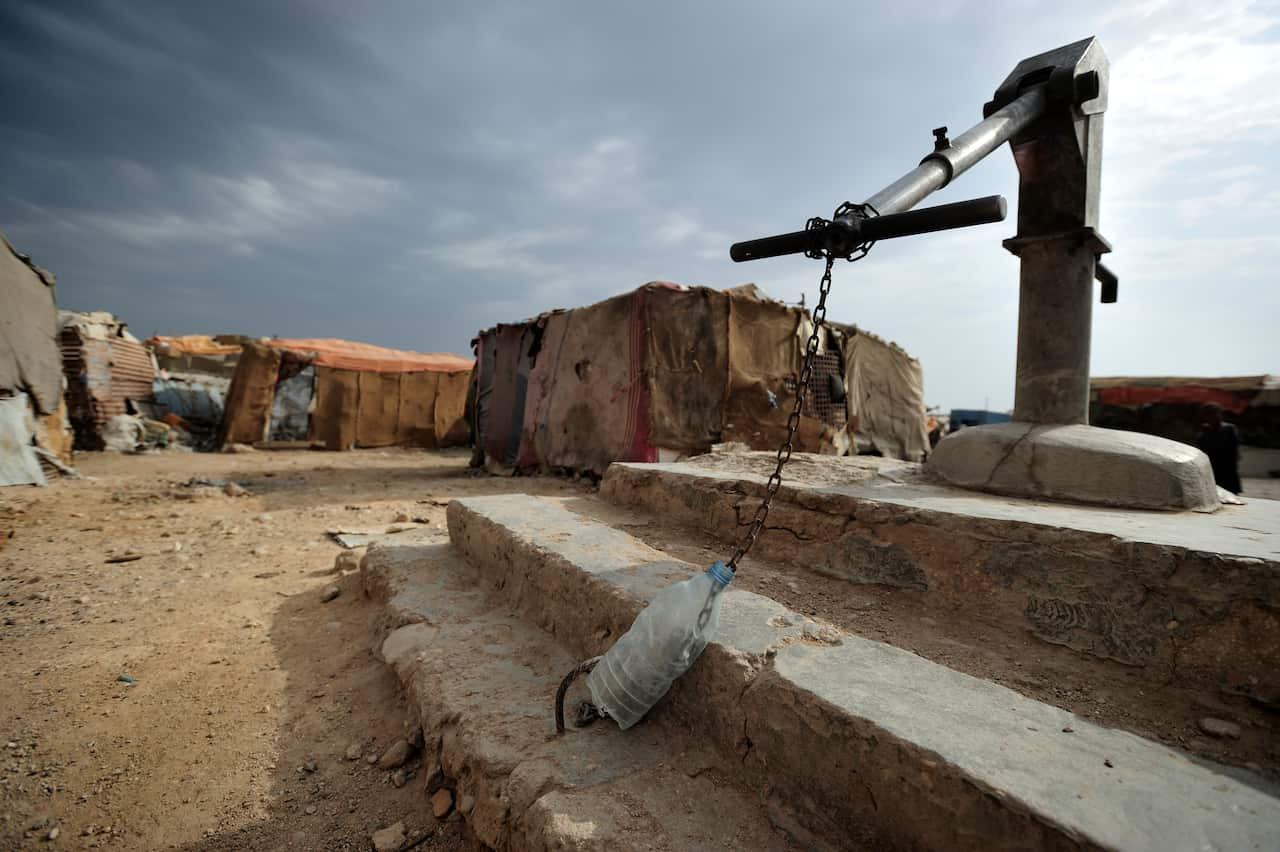
A locked well at a camp in Somalia's Bossaso. People have to pay for water in the camp. Credit: Yannick Tylle/Getty Images
“High water stress is estimated to affect about 250 million people in Africa and is expected to displace up to 700 million people by 2030. In the past 50 years, drought-related hazards have claimed the lives of over half-a-million people and led to economic losses of over USD70 billion in the region,” he stated.
Share
